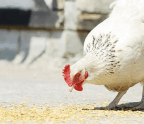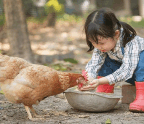Beekeeping With a HONEYBEE ALLERGY

A common concern about bees and beekeeping is getting stung and allergic reactions. When I first started beekeeping I had what I considered a “normal” reaction to stings. I have since developed an allergy; luckily, I have been able to continue my work as a beekeeper.
Reactions to bee stings can be divided into (Ithaca: Cornell University. 2009, Pages 98-99), an immunological response can range from a normal, non-allergic reaction at the time of being stung, such as pain, burning, redness, itching, swelling, and tenderness at the sting site, to a large local reaction, including extreme swelling around the site, lasting up to a week. While some of my reactions had been quite large, none had spread beyond the area of the sting.
You’re reading a preview, subscribe to read more.
Start your free 30 days





